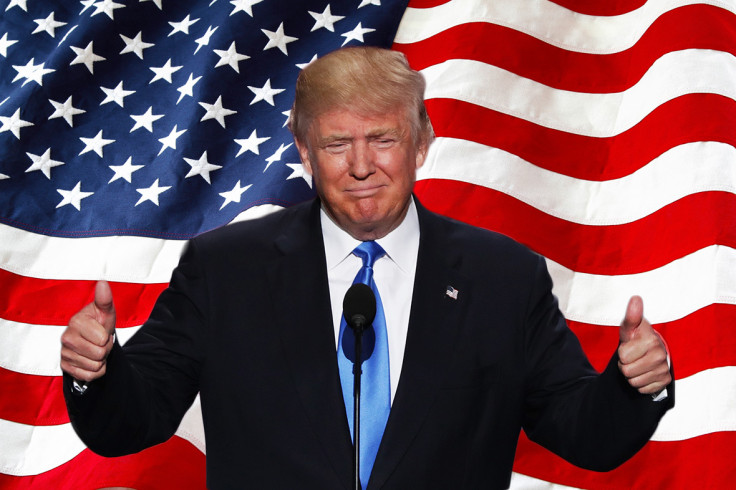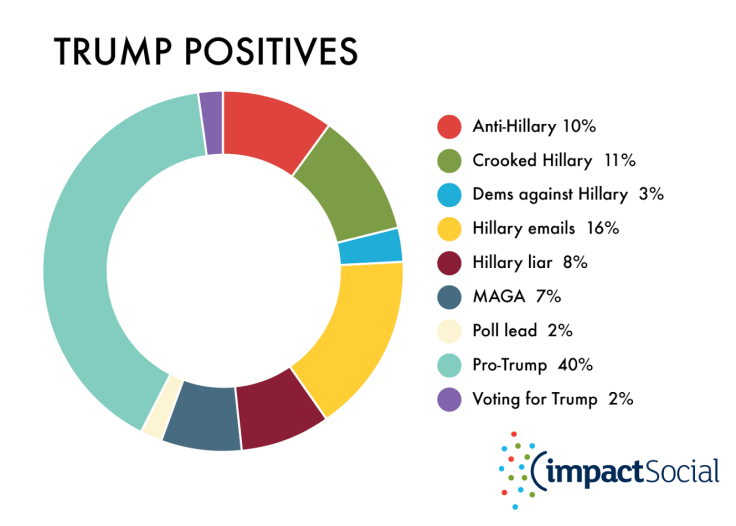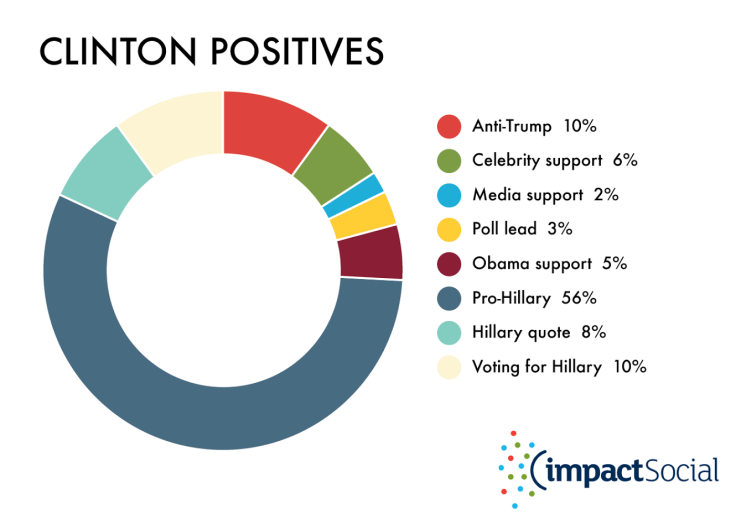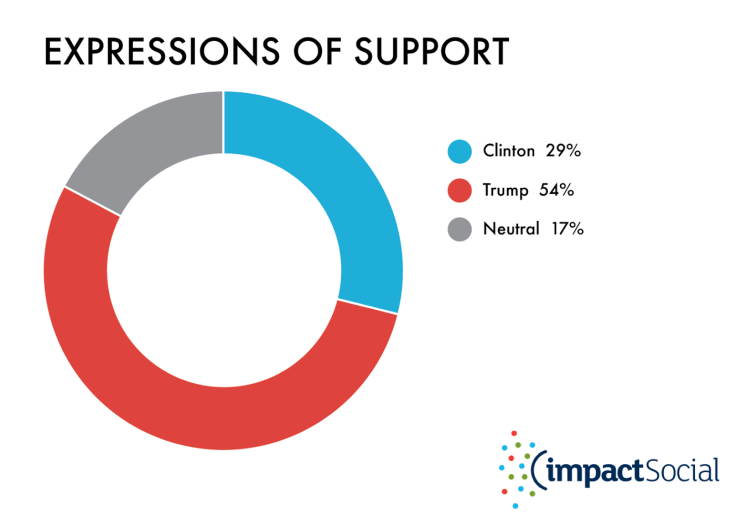Fear and self-loathing may be about to push America to President Trump
While the polls have Hillary Clinton in a narrow lead, Florida's social media data tells a different story.

Maybe America has a collective psychological issue, one which explains why apparently good people could be about to make irrational, bad decisions. Self-loathing and a subsequent belief that they deserve only the worst forces individuals into making decisions they know to be hurtful to them. America's dietary habits suggest they may not be unused to poor choices, but now they seem, according to significant data, to be about to take that to another level.
The country has a choice, this week, between the 'not-that-great' and the 'potentially disastrous'; between the second-least liked candidate in campaign history, and the occupant of first place. And it may well be that Americans have looked at their choices and decided that if they want to have a bad president – then they may as well have a really bad one.
While the polls, mostly, have Hillary Clinton in a narrow lead, the social media data tells a rather different story.
The social media analysis company Impact Social looked at 160,000 social media posts and commentary in open news forums in the key swing state of Florida, where President Obama said 'win Florida and it's a wrap'. And what they found doesn't look good for Clinton.
The first thing to note is the 'share of voice'. Trump is the main subject of almost twice as many posts as Clinton (54% to 29%, with 17% neutral). Arguments can be made that this is a kind of false traffic, but it's also Trump's strategy. Outgunned on traditional media spend, he gets his airtime for free by being outrageous.
It's perfectly possible that he's incapable of taking nuanced policy positions – we've seen no evidence that he can – but he doesn't try because explaining policy makes less noise that one-liners designed to cause outrage. That gets him the lead spot on news bulletins, it gets him talked about on social media – and it gets him votes. In this case, noise means support.

What's also striking is the fact that amongst that (very large) body of posts which support Trump, around half of them are simply made up of attacks on Clinton. The hatred of Hillary is quite startling – casting her as a liar, crooked and corrupt, with the on-off kerfuffle of the FBI's renewed investigation into her use of emails fuelling that fire. Trump has taken a consistently aggressive line against all sorts of targets (Mexicans to Muslims) throughout this campaign. As the big day draws near, his attacks have narrowed to just one person. And they are landing.
The pro-Clinton data, smaller in number, seems to be of a happier disposition, with only 10% anti-Trump and the rest making much of their support, or Obama's, or the media's or a celebrity endorsement. All, unwittingly, backing Trump's stance as himself as the lone man standing against the establishment.

So, the social media data has it, Trump is doing very well in Florida. If he holds on to the states that Mitt Romney won last time (not certain, of course), he needs Florida, Ohio and some smaller wins, and the White House is his. Win Florida, and it's a wrap.
The problem for Clinton is that, while there are Republicans who can't vote for Trump, very few of them can vote for her. A stronger Democratic candidate would have sewn things up on the basis of Trump's divisiveness, but Clinton is no unifier.
And assuming that Trump's pussy-grabbing, Muslim-banning, wall-building, Putin-loving persona would turn voters off assumes that they take these things seriously as any kind of policy in the first place. In this post-factual world, they are seen as postures, not policies and, set against Clinton's carefully explained positions, they simply appear to be more digestible.
It doesn't paint a happy picture of a healthy democracy, but there are two hopes for the Clinton campaign. One is that the polls are right and the social media is wrong. Cling to that, by all means, but remember that this data represents information freely volunteered online, in a country with very high digital penetration. And remember how well the polls did over Brexit.

But, more significantly, remember that most social media measurement, including this, takes place in English only. This will not take full consideration of the Latino vote, whom Trump has not exactly courted, and who will often converse online in Spanish. They make up almost a quarter of the population of Florida and, early indications seem to show, are mobilising against him.
It's those voters who are key and who could rescue Clinton. While those postures brought Trump close to the White House, his demands for The Wall may have put one last, insurmountable, obstacle in front of him.
But I wouldn't bet on it.
Jimmy Leach is a digital consultant, working on platforms and communications for governments, corporations and start-ups.
© Copyright IBTimes 2025. All rights reserved.






















